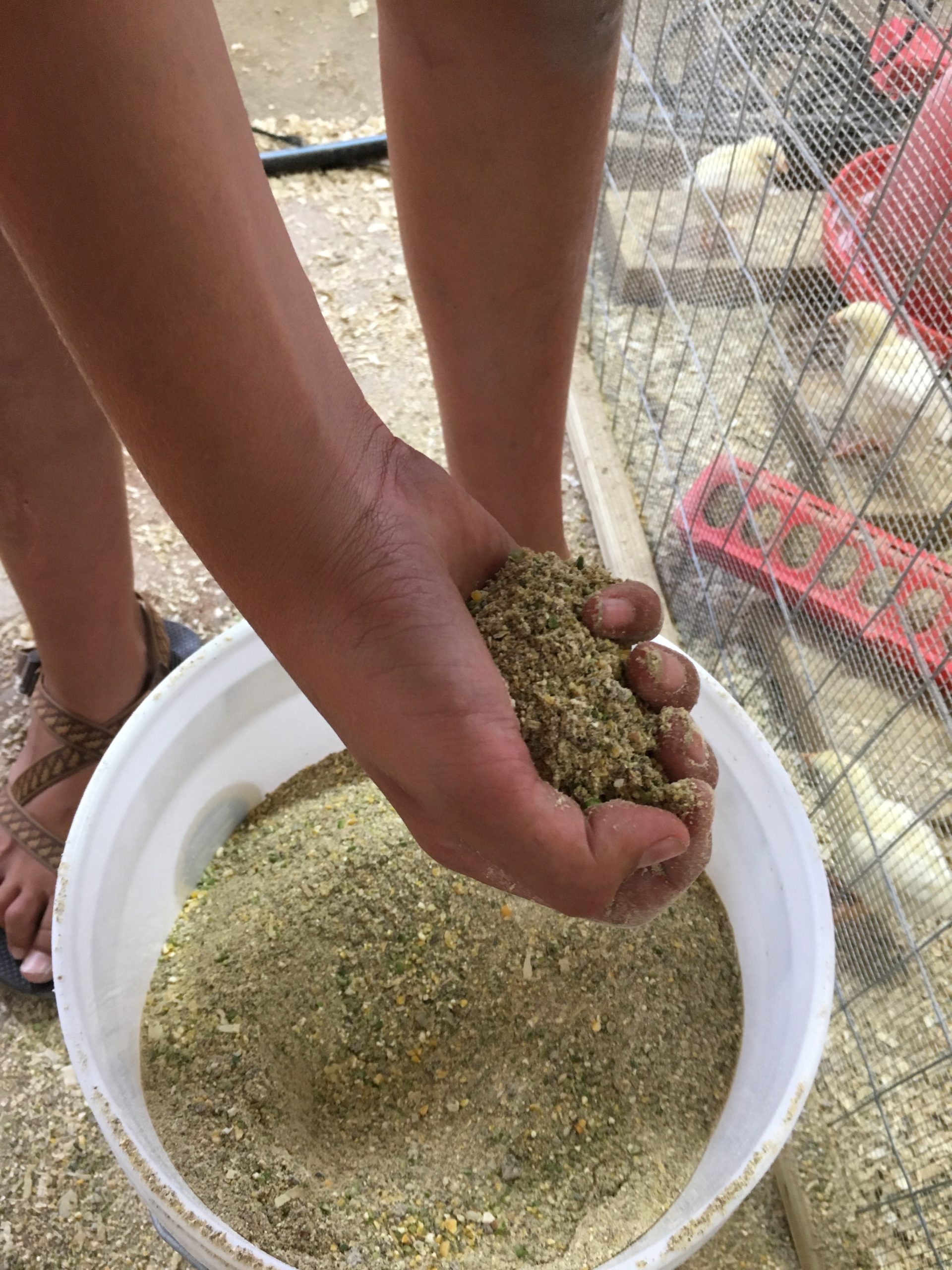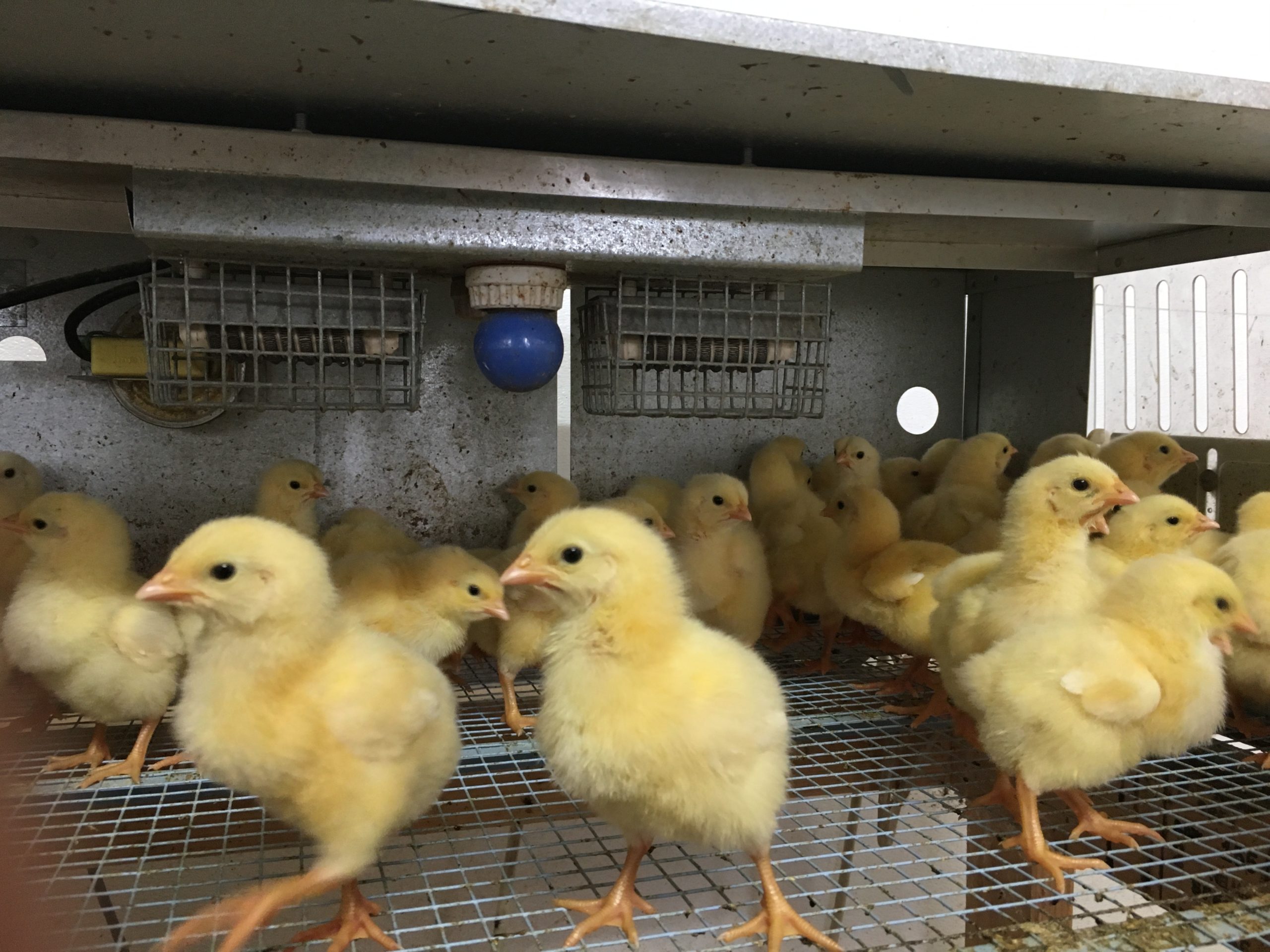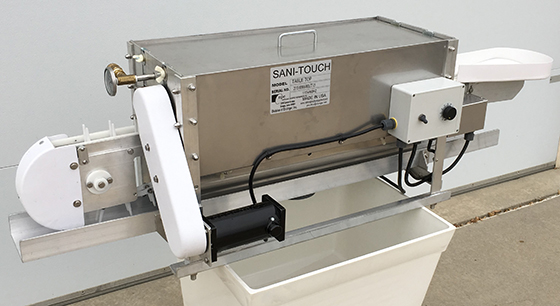Why is our beef different?
We only raise Devon beef animals, which are:
Having been raised completely on grass yields a better texture, density, and flavor than conventionally raised cattle. The meat is leaner, denser, higher in vitamins/minerals, and has a more natural taste. Some farms that produce “grass fed” beef let their cattle out to pasture, but supplement them with grain to fatten them before slaughter.
The Pasture
We strive to give our animals the best possible pasture. Their pasture is completely natural – without chemicals to suppress weeds or kill bugs. They roam the pastre all day, every day.
The cattle benefit from methods taught by Allan Savory, Joel Salatin, and Greg Judy. The goal of these regenerative pasture management approaches is to improve the microbiology of the soil. Better soil yields higher nutrient content in the grass, greater absorption of water into the earth, and higher carbon sequestration in the soil.
Ultimately, embracing a natural grazing system results in a very pleasant, natural, and comfortable life for our cattle.
The Rotational Grazing System

This image is from the NRCS (Natural Resources Conservation Service). Scientists now realize that mob grazing, or Managed Intensive Grazing, is the best way to graze cattle. In this system, cattle don’t remain in one paddock for more than seven days, and usually for only one day.
Following the grazing, the paddock is allowed to recover for 30 to 90 days – depending on the season, soil, and local climate. This allows the pasture to develop a firmer root base. In fact, grass that’s effectively grazed performs better than grass that is over or under grazed.
As shown in the graphic above, a short intensive grazing period with a long recovery period allows a sophisticated root system to develop. This method could have a significant environmental impact if adopted by more farmers.
Please download, print, read, and circulate the Beef Raising Overview, which describes a holistic and natural method of raising gourmet beef on grass.
Sheep (Companion Animals to the Beef)
Our sheep follow the same grazing patterns as our steer and cows. They sometimes travel together because it’s safer for all of them (safety in numbers!).
Woodland-Raised Pigs
Unlike cattle, pigs are unable to ruminate and sustain themselves solely on a pasture diet. If they were left on pasture, they would be unhappy. Hence, they’re supplemented with grain.
Essentially, our pigs spend their life consuming a varied, nutrient-dense diet. They also live a pleasant life relaxing in the shelter of the woods out of the harsh sun and wind, sleeping in, and foraging for roots, nuts, and berries.
Pigs also play a critical role in regenerative agriculture: they’re nature’s aerators and tillers. They lift and move the soil with their snouts while looking for roots and nuts.
Industrial farmers till up large plots of land that leave the earth exposed and dehydrated. Pigs only root up small areas; over long periods of time, the soil is tilled and aerated without unearthing too much at once.
Like the Devon beef, their meat is denser and more filling than the industry standard.

Broiler Hens
From May to December, we sell Broiler Hens (aka Young Meat Chickens) in our Farm Store.
The chickens are raised “proudly on pasture” and live in small huts that are moved twice a day. They forage in the pen, and consume a GMO-free/soy-free organic grain.
Customers tell us they “taste the difference” in our broiler hens; our international clients say it tastes like chickens in their home coutries.
Healthy chickens come from a healthy environment:
1. Organic, soy-free chicken feed is healthier for the bird and customers.
2. We buy local feed, so our dollars stay in the local economy.
3. The birds receive personal care and attention.
4. Our employees work in a healthy environment that’s not overwhelmed by ammonia.
5. Chicken excrement is used as a natural fertilizer on the farm.

We start, maintain, and finish our meat chickens with an organic, soy-free recipe we purchase from a certified organic farm (run by a great family) located about an hour from Mary’s Land. Unlike many industrial-organic farms that may buy their grain from Brazil, we’re certain of the feed quality and its origins. Our grain costs up to 10x more than buying the grain from Brazil; however, we think it pays back handsomely.

We start baby chicks in metal brooders. We check their temperature, food, and conditions them 2 or 3 times a day. Our staff raises about 800 broiler chickens at any given time, which is just the right amount for us to supervise and care for.

When the chicks can handle outside temperatures, they’re moved outside for foraging. We ask a local he-man or woman to move the pen in the mornings and evenings, so the chicks have fresh grass. Additionally, their manure (which is a great fertilizer) is being spread evenly around the pasture!

We humanely process the chickens on site between June and October; we sell them fresh at the store for the next few days before extras are moved to the freezer. Please download, print, read, and circulate the Broiler Raising Overview, which describes our holistic and natural method of raising great-tasting chickens.
Please download, print, and circulate the Broiler Raising Overview, which is written for anyone interested in a holistic and natural method of raising great tasting chicken.
The layer hens spend the mornings laying eggs and consuming GMO-free/soy-free organic feed mix; the afternoons roaming and foraging outside the barn; and the evenings securely locked in the barn.
Healthy chickens come from a healthy environment:
In the beginning of 2021, we designed and constructed mobile chicken coops to give the birds better access to pasture. The coops are placed in the middle of a field, and the chickens eat seeds and insects, which supplement their diet. This results in a superior egg with rich yellow (almost orange) yolks that contain higher nutrient content than a commercial eggs.
The layer chickens forage outside; yet, they wouldn’t lay eggs year round if they didn’t eat grain. However, unlike most chicken farms, we provide a varied grain diet.
They eat an organic, soy-free/GMO-free blend purchased from Panorama Grain, a a certified organic feed supplier in Pennsylvania who custom mixes our feed. We purchase this locally-grown, locally-milled feed to keep money in the local economy. Plus, any unused feed is turned into fertilizer for our fields.
Our chickens also eat organic field peas, oats (or spelt), flax, argonite (calcium), fish meal, crab meal, alfalfa meal, and Fertrell probiotics.
Every day, our farmhands collect eggs from the hen’s nesting boxes and feed them. Frequent visits allow us to keep an eye on the flock and monitor their health, ensuring our birds are healthy and happy.


To clean our eggs, we use a Sani-Touch egg washer with brushes. We initially bought an immersion washer, which required harsh chemicals. This defeated the purpose of raising organic eggs.
Please download, print, and circulate the Layer Hen Overview, which describes a holistic and natural method of raising great-tasting eggs.
Like the chickens, Mary’s Land ducks are supplemented with GMO-free/soy-free organic grain. Through supplementation and a healthy life, the ducks produce eggs that are much higher in fat, which is desirable in baked goods.
Our ducks swim in ample ponds and they keep insects at bay. They also provide nutrients for composting, which is spread on fields to improve the pastures.
Come bring your children to see the beautiful swimming ducks!
The turkeys forage through the woods during the fall, when there’s a spike in the fescue nutrient content and availability of seeds. They stroll around their pasture and play with each other.
The Mary’s Land turkeys:
Come visit our turkeys any time from the end of July up to a few days before Thanksgiving!

© 2024 Mary's Land Farm. All rights reserved.

Impress your guests with local & tasty Pasture-Raised Pork Hams or Lamb Roasts. Orders due March 22 for pickup March 23-30.
Adding {{itemName}} to cart
Added {{itemName}} to cart